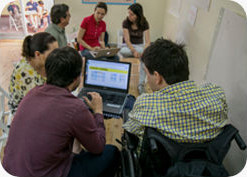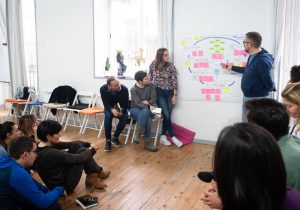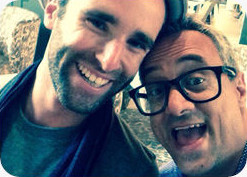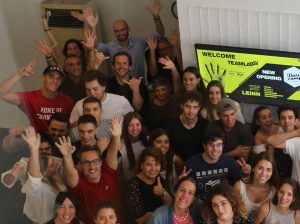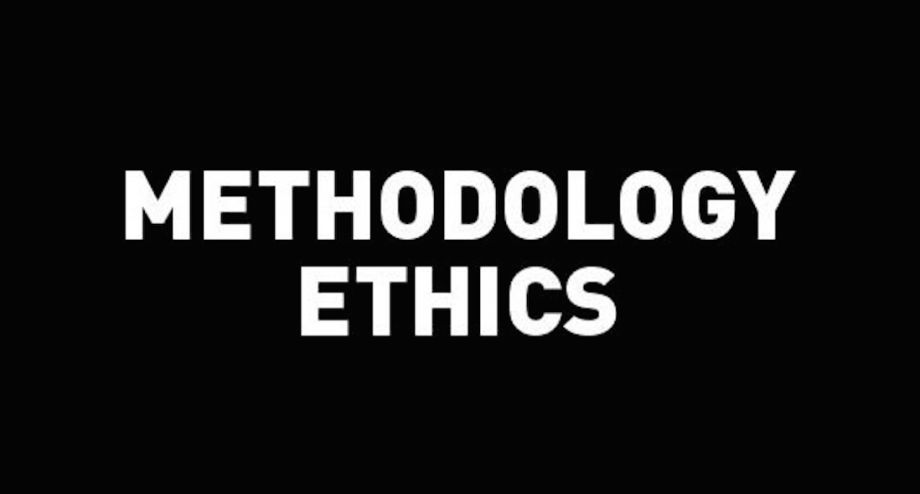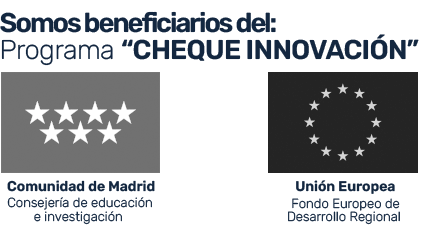By GK VanPatter (SenseMaker, Author, Speaker, Advisor, Co-Founder, HUMANTIFIC).
Tricky topic: Ethics in the context of design thinking. While reading a recent thread posted by someone in one of the LinkedIn Design Thinking groups on the topic of industry ethics I started to write a few comments on this always difficult subject. The tiny “comments” box was too small for my text so I will make this into a brief blog post here. Yes, somewhat by this accident I started writing about a subject that has been percolating in the back of my mind for some time. It is something that occurred to us when we were working on our recently published book: Innovation Methods Mapping: Demystifying 80+ Years of Innovation Process Design.
The topic of community ethics is a rather dry but important one and I was somewhat surprised by the focus of that Design Thinking group thread in which these questions were initially asked: “What is the ethical grounding of design and design thinking? This includes what work one chooses to do as well as how one approaches the actual design. Are designers responsible for the ethics of their [output] designs?”
Appearing in that very interesting and lengthy, multiple participant conversation was the statement that “ethics is completely about being responsible” as well as concern being expressed regarding:
“Ensuring positive social impact
Misusing empathetic research
Negligence in security involving user information
Bias in artificial intelligence
Plutocracy worshipping
Insincere adoption of human centered design
Living in a ponzi scheme
Avoiding exploitation of nature and society
Data rights
The values of a winner take all society
Need for moral integrity”
Also pointed out was the noble goal of “living an ethical life”…and the suggestion that design thinking is “uniquely placed as a likely vehicle for a more ethical approach.”
The thread ended with a participant pointing out that “the principles of respect, responsibility and honesty are equally applicable to other stages of the design process [not just design research].”
I was surprised to see that missing from the lengthy discussion was one of the most important elephants presently in the design thinking living room, albeit difficult to get at and even trickier to talk about. It takes a methodology oriented set of glasses to see it. Once you become aware you see it everywhere! Framed as an ethics issue it looks something like this:
Hidden in plain sight, a key ethics issue presently facing the design / design thinking communities including the design education community is widespread “creative” misrepresentation of methods and their predicted outcomes.
With the rise of interest in the subject of design thinking the methodology redepiction phenomenon has skyrocketed. Whether it has risen to the point of becoming an industry ethical problem and whether or not anything can or should be done about it are among the debatable issues.
To any professional ethics oriented body the redepiction wave would raise several seldom asked questions including:
When does creative marketing become unethical misrepresentation?
What are the reasonable responsibilities towards representation inherent in the professional practice of design / design thinking in its various forms?
Today in 2018 are there any articulatable ethical responsibilities for practitioners or is the practice of design / design thinking now a 100% wild west, take no prisoners, free for all?
What’s The Not So Good News?
Presently in the completely unregulated design / design thinking industries there really is no such ethics oriented body, as in a professional association of any significance.
For those who are new to the subject and might not know: Historically many basic ethics and protocol standards came from and were taught in professional design schools.
Unfortunately much of that orientation has disappeared with the simultaneous repostitioning of many graduate schools as revenue generating consultancies. Out the window went the historical orientation to ethics and in its place the free for-all-dynamics of the competitive marketplace were imported.
Many graduate design schools now compete in the marketplace directly with their own graduates, often without any acknowledgement, formal study, research or knowledge of consequences beyond generating revenue. A valuable ethics centered community resource has been seriously compromised, eroded and largely lost in the often unacknowledged conversion of graduate design schools to revenue generating businesses. In effect the graduate design schools have eliminated themselves from the ethical guidance equation.
Facing the external world shift towards increased complexity of challenges in organizations and the planet but slow to adapt at the R&D methodology reinvention level, most of the graduate design schools instead adopted the more marketing oriented, rapid response notion of selling philosophy as methodology. It’s a much faster adaptation fix then actually rethinking methods and related programs.
Today often broad world peace size philosophical transformation intention statements are routinely made but then without batting an eyelash, oddly coupled with downstream assumption-based methods (Product/Service/Experience Design) being redepicted as upstream and universal. Not quite a bait and switch it is often more akin to design thinking hocus-pocus, a shell-game of sorts.
This phenomenon is now so widespread among the graduate design schools and many of their graduates that it has become the defacto industry standard. In conversation after conversation right here on Linkedin one can see many arriving participants, taking the philosophy is methodology hocus-pocus phenomenon for granted.
Unknown to eager incoming students, many graduate design schools are knowingly engaged in depicting and selling what they surely must know to be downstream assumption-based methods (Product/Service/Experience Design) as upstream open-aperture universal meta (Design Thinking) methods.
As those students eventually graduate and enter the real world marketplace their methodology indoctrination and disorientation often becomes evident but the disconnect does not seem to concern the design schools from which they just exited. It’s a subject that many in designerly academia would prefer not to talk about.
Unfortunately as the popularity of design thinking grew, many of the relatively unenlightened business schools, seeking to enter the same revenue generating arena have adopted the hocus-pocus approach. Several versions of the downstream is upstream spin now exist, some more strategic then others.
Outside of academia, in the parallel universe of business, unknown to many seeking Design Thinking services, numerous consulting firms are echoing what the graduate schools are modeling and doing. Many are knowingly engaged in depicting and selling legacy downstream assumption-based methods (Product/Service/Experience Design) as upstream open-aperture universal meta (Design Thinking) methods.
Signing up for the redepiction hocus-pocus has become part of the procedural litmus-test indoctrination around the subject of design thinking often framed as: Do you get it? and Are you a believer?
As the teaching of skills being framed as “Design Thinking” become more and more dispersed into other disciplines, with other value systems, there is no real center of gravity for ethical considerations. The bare-knuckle ethics and lack-there-of in the competitive marketplace now rule the roost around this subject.
Whether we all like it or not it is that methods hocus-pocus that has become the #1 shell-game going on in the industry at the moment with many in the arena now involved including the highest profile American graduate design schools. Without doubt it’s a game that bumps directly up against numerous ethical questions.
Clearly this is a difficult subject and even raising it as a topic tends to generate heat. With heavy investments made in the selling of downstream as upstream many would prefer that the subject never comes up, that the elephant, visible in plain sight, is never referred to or acknowledged.
What’s The Good News?
What is (hopefully) coming is the end of the philosophy/methodology hocus-pocus era and a new era of Methodology Ethics. What’s needed is a new era of heightened methodology awareness, transparency, honesty, ethics and authentic reinvention.
As clients become more methodologically enlightened, this is bound to occur one way or another. In the face of that enlightenment many of the “creative” hocus-pocus redepictions presently flooding the marketplace will eventually fall away. In their place will be more honesty regarding the limitations of legacy, assumption-based methods.
The magic thinking notion that traditional design methods scale to all contexts from tooth brush creation to organizational transformation to world peace will give way to new and more enlightened calibration, in the industry. The depicting of downstream methods as upstream methods will give way to more honest depictions and more meaningful choice. The graduate design schools will wake up to the challenge of making real methodology and program changes not fixable by tweaking marketing campaigns.
Most importantly many new streams of creation around new approaches geared to broader more complex contexts will emerge. This stream is already underway.
Unfortunately the present community leadership picture around this elephant in the design thinking living room is not great and this makes for difficult problem recognition, acknowledgement and changemaking.
At the moment there seems to be no professional association-type bodies capable of weighing in on the subject…suggesting or setting ethical standards. With many of the graduate design schools up to their eye-balls in the spin it is unrealistic to expect any kind of meaningful leadership around this issue from that direction. On top of all that, there is no real formal strategic design journalism or “press” to speak of so the issue is unlikely to surface from that direction. Combined, it’s a bit of a perfectly disfunctional community storm.
This is not a problem that our practice owns but as practitioners we can certainly recognize that it exists and is having significant impact. The shell game itself has caused massive confusion around the subject among the public. It seems likely that if the hocus-pocus issue is not somehow addressed the design thinking era will likely be foreshortened, eclipsed and or not fully realized.
At the end of the day, in spite of the community leadership void we all decide consciously or unconsciously to place ourselves and our practices on one side or another of this issue. As practice leaders, we have at Humantific, already made our choice.
It will surely be interesting to see how each side plays itself out going forward. As with most emerging change eras this one is overdue and bound to be a bumpy ride. Clearly not everyone is ready.
Good luck to all.
PS: Since this post was published something came up on another list group so I will share it here…It’s a tip that might be useful for others:
Imagine yourself in a meeting and someone says something like this: “Design Thinking is an upstream process that helps take a new stance on a problem old methods do no longer solve.” It is a true statement but watch out for the hocus-pocus…What you want to do is ask: Is that the philosophy or the methodology or both?
If the Design Thinking they are talking about is “an upstream process” then it’s methodology can’t be downstream, assumption-based product, service or experience design. If you see broad upstream statements combined with downstream methods then you know you are in the Design Thinking Hocus-Pocus Zone.
Is that hocus-pocus ethical? You decide. Good luck to all.
